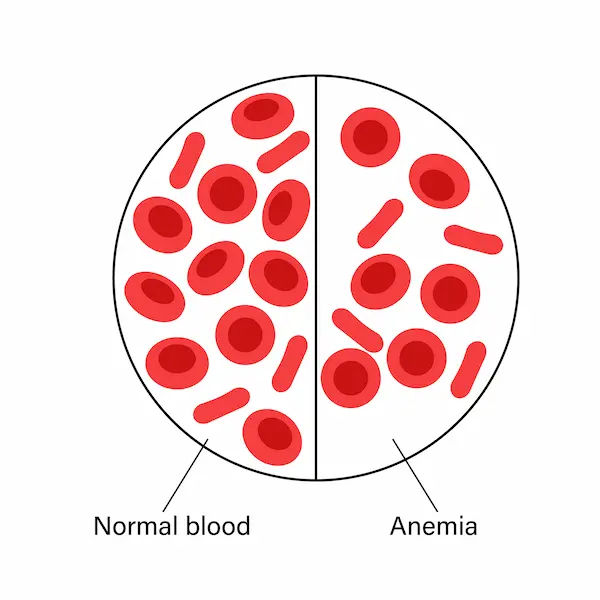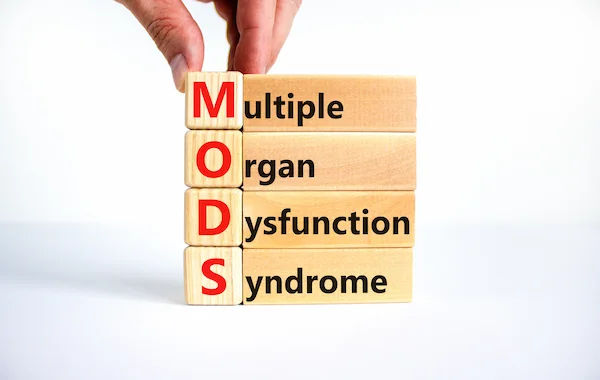Navigating the Teenage Years: Your Guide to This Transformative Phase
Discover the physical, emotional, and social changes of adolescence and learn practical strategies to thrive during the teenage years.

Written by Dr. Dhankecha Mayank Dineshbhai
Reviewed by Dr. Siri Nallapu MBBS
Last updated on 13th Jan, 2026

Introduction
The teenage years. Just the phrase can conjure up a mix of emotions—excitement, confusion, anxiety, and anticipation. It’s a period often labelled as turbulent, but what if we looked at it as a necessary and powerful phase of transformation? This isn't just about "angst" or rebellion; it's a fundamental rewiring of your body, brain, and social world. You're transitioning from childhood to adulthood, and that journey is complex, challenging, and incredibly significant. This guide is here to walk you through the science and the experience of the teenage phase, offering insight and practical strategies to help you not just survive, but truly thrive during these formative years.
We'll explore the physical changes driven by puberty, decode the emotional rollercoaster by looking at your developing brain, and navigate the complexities of social relationships and identity formation. Whether you're a teenager seeking to understand yourself or someone supporting a teen, this article aims to provide a compassionate and comprehensive map for this unique life stage.
What is the Teenage Phase, Really?
More Than Just "Angst": Defining Adolescence
The teenage phase, scientifically known as adolescence, is the developmental period that bridges childhood and adulthood. It typically begins with the physical onset of puberty, around age 10-12, and continues into the early twenties. The American Academy of Paediatrics emphasises that adolescence is marked by rapid and significant development in every area of a person’s life. It's not a problem to be solved but a process to be understood.
The Three Key Domains of Change
This transformation happens across three interconnected domains:
Biological: This involves the dramatic physical changes of puberty.
Cognitive: Your brain undergoes a massive renovation, leading to new ways of thinking.
Social-Emotional: Your focus shifts from family to peers, and you begin the critical work of forming your own identity.
Understanding that these changes are interconnected helps explain why a bad day with friends can feel physically crushing, or why a growth spurt can leave you feeling emotionally drained.
The Physical Rollercoaster: Your Changing Body
Puberty and Growth Spurts
Puberty is the engine of the physical teenage phase. Driven by hormones, it leads to growth spurts, changes in body shape, the development of secondary sexual characteristics, and for many, skin changes like acne. It's common to feel clumsy or awkward as your limbs grow faster than your coordination adjusts. Remember, this is temporary, and everyone progresses at their own unique pace.
The Sleep Shift: Why You're Nocturnal
Have you noticed it's harder to fall asleep before 11 PM and nearly impossible to wake up early? This isn't laziness; it's biology. During adolescence, the body's internal clock (circadian rhythm) shifts, delaying the release of melatonin, the sleep hormone. This means your natural sleep time is later at night and later in the morning. Prioritising 8-10 hours of sleep is crucial for mood regulation, memory consolidation, and overall health.
Health topic carousel:
Doctor's speciality: General Practitioner
Text: Consult a Specialist for the best advice
Nutrition and Exercise for a Growing Body
Your body is building itself at an incredible rate, requiring proper fuel and movement. A balanced diet rich in protein, calcium, iron, and vitamins is essential. Regular exercise isn't just for athletes; it's a powerful tool for managing stress, boosting mood, and supporting a healthy body image. If you have specific concerns about your diet or physical development, consulting a doctor can provide personalised guidance. Platforms like Apollo24|7 make it easy to connect with a nutritionist or general physician online for advice.
The Emotional Landscape: Riding the Wave of Feelings
Why Emotions Feel So Intense
One minute you're on top of the world, the next you're in the depths of despair. This emotional volatility is a hallmark of the teenage years. The reason lies deep within your brain.
The Amygdala vs. The Prefrontal Cortex: A Brain Under Construction
The amygdala, the brain's emotional centre, is highly active during adolescence. It processes emotions like fear and anger with great intensity. Meanwhile, the prefrontal cortex—the part responsible for rational thinking, impulse control, and long-term planning—is still under construction. It's like having a powerful accelerator (the amygdala) with brakes (the prefrontal cortex) that are still being installed. This neurological mismatch is why you might react more emotionally to a situation than you would have as a child or will as an adult.
Identifying and Managing Big Emotions
The first step to managing intense emotions is to name them. Instead of "I feel bad," try to be specific: "I feel rejected," "anxious," or "frustrated." Techniques like deep breathing, journaling, going for a run, or talking to a trusted friend can help create a space between the feeling and the reaction, allowing your developing prefrontal cortex a chance to catch up.
The Social World: Friends, Status, and Finding Your Tribe
The Shift from Family to Friends
As you seek independence, your peer group becomes your primary social laboratory. Friends provide a sense of belonging, acceptance, and a space to explore your identity outside of your family unit. This is a normal and healthy part of adolescent development.
Navigating Peer Pressure and Social Media
The desire to fit in can sometimes lead to peer pressure. Learning to assert your own boundaries is a critical skill. Similarly, the digital world adds a new layer to the social phase. Social media can be a great connector but remember, it's a highlight reel, not reality. It’s vital to curate your feed positively and take regular breaks to stay grounded in real-life connections.
Understanding Romantic Relationships
Exploring romantic attraction is another key feature of this phase. These relationships teach you about intimacy, communication, and respect. It's important to understand the difference between healthy relationships based on mutual respect and unhealthy ones involving pressure or control.
The Quest for Identity: "Who Am I?"
Trying on Different Hats
This is the central task of adolescence: figuring out who you are. You might try out different styles, friend groups, hobbies, and opinions. This "trying on" of identities is not being fake; it's a necessary process of discovery.
Values, Beliefs, and Future Goals
This is when you start to question the beliefs you were raised with and form your own. You begin to think about your future career, your values, and what kind of person you want to become. This introspection, while sometimes confusing, is the foundation of a strong, authentic adult self.
Practical Strategies for Thriving, Not Just Surviving
Communication Skills: Talking to Parents and Adults
It's common to feel misunderstood by parents. Instead of shutting down, try expressing your need for independence while acknowledging their concern. Use "I" statements: "I feel overwhelmed when you ask about my grades constantly. Can we talk about it after I've had some time to relax?"
Building Healthy Coping Mechanisms
Find healthy outlets for stress. This could be creative pursuits like art or music, physical activity, mindfulness meditation, or simply spending time in nature. Avoiding negative coping strategies like substance abuse is critical for your long-term well-being.
When to Ask for Help
It's normal to feel sad or anxious sometimes. However, if these feelings are persistent, intense, and interfere with your ability to function at school, with friends, or at home, it's a sign to seek help. Talking to a school counsellor, a trusted adult, or a mental health professional is a sign of strength. If you're unsure, consulting a doctor online with Apollo24|7 can be a private and convenient first step to discuss your concerns and get guidance on the next steps.
Conclusion
The teenage phase is a journey of profound transformation. It's a time of navigating a changing body, intense emotions, complex social dynamics, and the fundamental question of identity. By understanding that these changes are rooted in biology and are a normal part of growing up, you can approach them with more self-compassion and less fear.
Remember, you are not alone in this experience. The goal is not to avoid the challenges but to develop the tools to navigate them successfully. Embrace the curiosity of this period, lean on your support system, and don't hesitate to seek guidance when needed. This phase is about building the foundation for the adult you are becoming—a process that is challenging, messy, and ultimately, incredibly rewarding.
Frequently Asked Questions (FAQs)
Is it normal to hate my parents during my teenage phase?
It's common to feel increased frustration or conflict with parents as you seek more independence. This is usually a sign of healthy separation, not hatred. The key is to work on communicating your needs respectfully.
How long does the teenage phase last?
Adolescence typically begins with puberty (around 10-14) and lasts into the early twenties, as brain development, particularly in the prefrontal cortex, continues.
Why do I feel so tired all the time?
Between growth spurts, brain development, and often inadequate sleep due to shifted circadian rhythms, fatigue is very common. Aim for 8-10 hours of sleep per night.
What's the difference between normal teenage mood swings and depression?
Normal mood swings come and go relatively quickly. Depression is more persistent, lasting for weeks, and includes feelings of hopelessness, loss of interest in activities, and changes in appetite or sleep. If you suspect depression, seek help from a professional.
How can I improve my communication with my parents?
Choose a calm moment, use "I feel" statements, and try to see things from their perspective. Acknowledge their concern while clearly stating your own needs.
Health topic carousel:
Doctor's speciality: General Practitioner
Text: Consult a Specialist for the best advice




